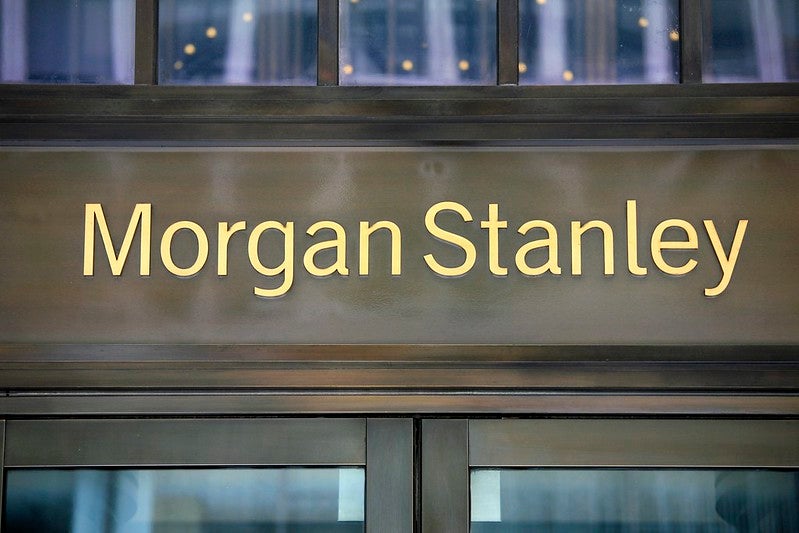With only 34 percent of HNWI
wealth in Brazil managed by private banks, there is some $180bn of
client assets up for grabs, according to PBI research. Government
plans for a tax amnesty could double the amount of funds held in
the country, providing a further boost to the industry. Rodrigo
Amaral reports
Brazil’s private banking industry is
heating up as local and foreign players make an effort to up their
game in one of the fastest-growing markets in the world.
A number of international banks have released
plans to set up shop or boost their presence in Brazil. But they
are facing strong competition from Brazilian banks which have a
dominant position in the market and have emerged strengthened by
the global financial crisis.
The Brazilian market was widely seen as one of
the most promising for private banks before the events of 2008, as
the economy had been performing well for a number of years thanks
to economic stability and a dynamic and varied economic base.
An unprecedented wave of initial public
offerings and the strength of sectors like agribusiness and
construction created a great number of newly wealthy
Brazilians.
Although the domestic economy has been hit by
the global crisis, it has recovered quickly, with forecast GDP
growth at 6 percent this year.
How well do you really know your competitors?
Access the most comprehensive Company Profiles on the market, powered by GlobalData. Save hours of research. Gain competitive edge.

Thank you!
Your download email will arrive shortly
Not ready to buy yet? Download a free sample
We are confident about the unique quality of our Company Profiles. However, we want you to make the most beneficial decision for your business, so we offer a free sample that you can download by submitting the below form
By GlobalDataThis is all good news for the country’s wealth
management industry. PriceWaterhouseCoopers estimates the private
banking industry should expand by 15 percent in 2010. The latest
World Wealth Report by Capgemini and Merrill Lynch ranked Brazil
10th in the world by the number of high net worth individuals at
the end of 2008, up from 12th a year earlier, with 131,000 people
in the ‘rich’ group.
Brazil’s 200,000 HNWIs
Local projections point to even higher
numbers. State-owned Banco do Brasil, one of the country's
largest banks, believes there are 200,000 Brazilians with more than
BRL1 million ($540,900) of investable assets. They are estimated to
own some BRL500 billion of assets that could be managed by private
bankers, though only 34.3 percent of this is currently managed by
the industry, according to PBI research.
“Brazil is living a special moment,” says
Mailson Hykavei, CEO of FinPlan, a São Paulo-based wealth
management boutique.
“Assets are being kept onshore rather than
offshore. Plenty of people are getting rich thanks to asset
appreciation and the country carries on creating wealth,” he
adds.
Banco do Brasil is one of the locally
established banks that is keen to develop its private banking
businesses. It hopes to take advantage of Brazil’s resilience and
the declining confidence among private clients in international
banks hit by scandals like the Madoff affair and the collapse of
Lehman and AIG-backed bonds.
Other big players include Itaú-Unibanco, the
market leader in wealth management in the country, and Banco
Bradesco, a large privately-owned financial group. The former,
which recently revealed an interest in acquiring bits of Royal Bank
of Scotland and the Lloyds Banking Group, has plans to grow
internationally in private banking.
Along with foreign players with a strong
presence in the retail banking market – like Santander (which
acquired ABN AMRO’s well-reputed onshore private banking operation
in Brazil) and HSBC, which announced that the country is one of its
priorities in the segment – the locals represent a formidable
barrier to the ambitions of new entrants.
Another strong local player is Hedging Griffo,
now part of the Credit Suisse group. In the past two years, local
private banks have reportedly grabbed a good number of new clients
who became disillusioned with their foreign providers. But global
firms are flocking in anyway.
JPMorgan took the head of its asset management
unit, Jes Staley, to the South American country last year to
highlight investments in its onshore private banking operations.
The bank has also been reported to have lowered the minimum
threshold required to accept new clients, although it says the
value will remain above the market average.
Goldman Sachs hired a former ABN AMRO banker
to command its private banking push in the country, and Bank of
America-Merrill Lynch launched a wealth management unit in Brazil
in November last year under the Merrill brand.
RBC Wealth Management, BNP Wealth Management
and others have also boosted their services for Brazilians in the
past couple of years, and even UBS, which left the country after
selling Banco Pactual last year, is said to be preparing a return
to onshore private banking in the country.
BTG Pactual, the bank created by former UBS
executives in Brazil, is a major player in the country, with
BRL12.4 billion of assets under management. Itaú-Unibanco leads the
pack with around BRL54.4 billion, according to Associação Nacional
dos Bancos de Investimento (ANBID) figures.
Brazil’s onshore trend
International banks want a stronger
presence in Brazil as the wealthy are more inclined than ever to
keep their money onshore.
The appreciation of the real, which has gained
almost 40 percent against the dollar since March last year, has
made keeping money in Brazil a good idea. Furthermore, there is
little incentive for Brazilians to move assets offshore, when they
are benefiting from better investment opportunities domestically.
Foreign investment in increasing, particularly in sectors like
infrastructure, ahead of events like the 2014 World Cup and the
2016 Olympic Games.
Analysts expect a new wave of IPOs to hit the
Brazilian market soon, which should increase the need for financial
advice.
This rising tide of onshore money could be
boosted further by a tax amnesty currently under consideration by
the Brazilian Congress. Some analysts believe that, if approved, it
could double the volume of onshore assets under management by the
private banking industry.
The main change in the private banking market
has probably been the consolidation of a new attitude by investors
towards risk. Brazil’s world-famous high interest rates mean that,
for a long time, keeping money in fixed income vehicles was the
best use one clients could make of their wealth.
“People would get real returns of up to 17
percent a year with government bonds,” notes Hykavei.
“You certainly don’t need a chartered
financial analyst to realise the advantage of achieving such
returns with so little risk and plenty of liquidity, so financial
advisers often found it hard to convince people it was worth paying
for their services.”
But interest rates have fallen sharply in
recent years, from a high of more than 40 percent to the current
8.75 percent, a level that still looks high compared to the
standards of the developed world, but feels mercifully low for
Brazilians.
Suddenly, bonds have turned boring and private
investors now want to see their money working harder in the
markets.
“Brazilian investors are having to re-educate
themselves to the concept of risk,” says Gustavo Castello Branco,
responsible for the wealth management operation of BNY Mellon in
Brazil.
The development of BNY Mellon’s onshore wealth
management business in Brazil shows why so many players are
interested in the market today.
In 2003, one year after the unit started, it
had BRL1 billion of assets under management. Today, the volume is
five times higher: BRL5.4 billion, according to ANBID figures.
Castello Branco says private clients in Brazil have been especially
interested in investing in the local hedge funds, known as fundos
multimercados.
These funds are more regulated and thus,
arguably, less risky than their Anglo-Saxon counterparts.
Investing overseas
In 2008, the authorities also
approved the creation of a new family of funds by which highly
qualified investors can have access to financial products
registered in other countries.
This has opened opportunities for
international banks to sell their global platform of investment
products to wealthy Brazilians. But increased contact with the
financial services industry means these wealthy Brazilians are also
becoming more demanding.
Hykavei, a former private banker at ABN AMRO
in Brazil, who set up FinPlan last year, says many have shown
dissatisfaction with the services they receive from the big
banks.
“In my contact with clients, I noted they were
unhappy with the fact bankers had only a superficial understanding
of their situations,” Hykavei says.
“I would say that the quality of people
working with private banking in Brazil today still is at least
questionable.”
The main reason for the dissatisfaction, in
his view, is the segmentation policy applied by the big retail
banks that dominate the market.
“A lot of habits from retail banking persist
in private banking departments,” Hykavei adds.
FinPlan is not the only company to adopt a
boutique approach to the market. A number of small outfits have
been created by well-respected asset managers, including Gávea
Investimentos and Rio Bravo Investimentos, which lists a number of
former Central Bank and Economy Ministry officials among its
partners.
The extensive network of branches owned by
large retail banks is a particularly important weapon to service
clients in a country as big and diverse as Brazil, and also
provides a wide net for customer acquisition.
But more sophisticated private investors are
still likely to be attracted by the broader product range and
international expertise the foreign players bring with them.
“Competition is getting harder, but
opportunities can be found by companies that can offer
differentiated services to private banking clients,” he says.








